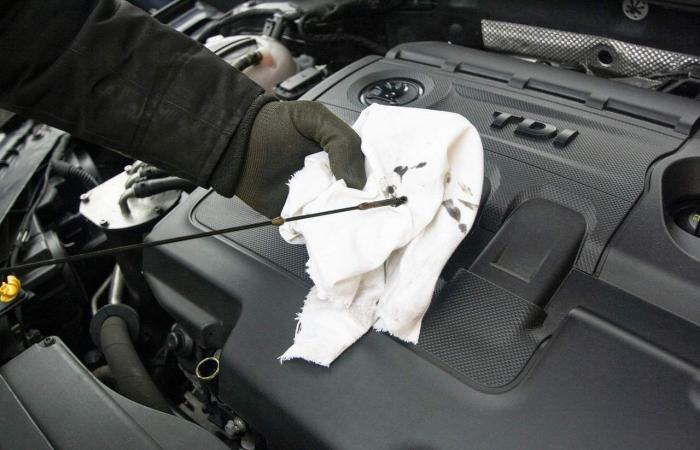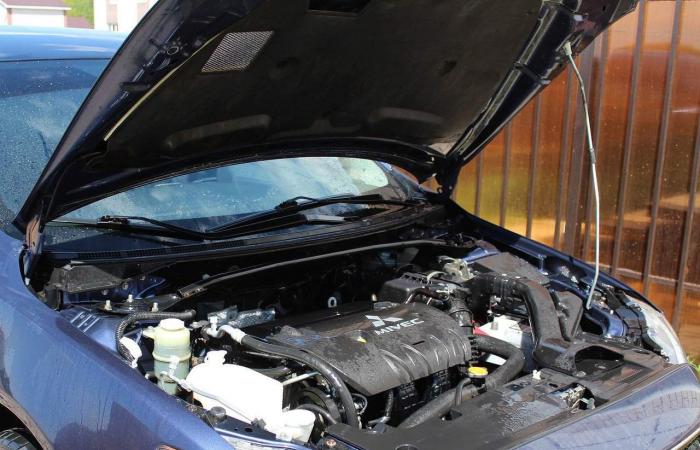The internal combustion engines that power most modern cars generate enormous amounts of heat during operation. While it’s normal for your vehicle’s engine to get quite hot while driving, too much heat can cause serious and expensive damage to the engine and surrounding components. If your car’s cooling system becomes damaged, your engine will be affected. Performance is likely to be reduced and the engine may even overheat, which will lead to damage and expensive repairs. So these are the reasons why your car engine is heating up!
This is why your car engine is heating up!
Low coolant
One of the most common causes of an engine overheating is a lack of coolant. Coolant is a combination – typically a 50/50 mix – of water and antifreeze used to absorb excess heat and move it away from the engine. It also helps prevent the engine from freezing in extremely low temperatures. Coolant is the lifeblood of your car’s cooling system. The system includes a radiator, a water pump, a thermostat, hoses and fluid channels through which the coolant flows.
As the coolant travels through the system, it absorbs heat from the engine. When the coolant returns to the radiator, it releases this heat and the cycle begins again. However, if the coolant level drops too low, the system will not be able to properly remove excess heat, resulting in an increase in engine temperature and potential damage.
Many problems can cause low coolant, but the most common culprit is a leak somewhere in the system. The rubber hoses through which the coolant circulates can degrade over time, resulting in cracks that cause leaks.
Low engine oil
A low engine oil level is another common cause of an engine overheating. Most drivers know that engine oil lubricates the engine and its internal components. But many people don’t understand what oil does exactly, even as a lubricant. The oil works as a lubricant to prevent friction in the engine. Friction causes heat and can contribute to damage over time. Thus, engine oil works to prevent overheating as it acts as a lubricant. But that’s not all the oil does. It also works in a similar way to coolant because it absorbs heat and moves it away from the engine. In this sense, the oil works as a heat sink.
If the engine oil level drops too low, you will encounter a number of problems, starting with an overheating engine and ending with a potentially seizing engine. Oil levels can drop for a variety of reasons, but the most common cause is a leak. Oil leaks are relatively common in older vehicles. Sometimes oil leaks are extremely small. But in some cases, a leak can cause your car’s oil level to drop to dangerously low levels, causing serious damage.
Broken water pump
The water pump is the heart of your car’s cooling system. Sends coolant through the system to absorb and remove excess heat from the engine. As coolant flows through the engine block and cylinder head, the liquid absorbs heat. The water pump continues to push the coolant through the cooling system, through a series of hoses, until it reaches the radiator, where it releases excess heat and is cooled by the outside air.
Water pumps are subject to wear and tear over time. Typically, you can expect a water pump to last at least 60,000 to 90,000 kilometers, although many last more than 100,000 kilometers. However, once you reach the 100,000 kilometer mark, you should anticipate replacing the water pump soon. When the water pump stops working, your car’s cooling system cannot function. This can quickly lead to devastating problems such as cooling system leaks, overheating and even catastrophic engine damage.
Radiator damage
Your car’s radiator is an essential part of the engine’s cooling system. It is responsible for helping the coolant release excess heat that it absorbs in the engine. The radiator can do this job thanks to its unique design. Radiators are shaped like large, thin boxes. They are filled with fluid channels and are covered by small fins or wings. Radiators are mounted at the front of a vehicle’s engine compartment, where cold outside air passes over and around them. As hot coolant enters the radiator, it travels through a series of fluid channels, where it is cooled by outside air flowing over the radiator and releasing excess heat from the engine to the atmosphere.

Belt or pulley damage
Although some modern luxury vehicles have electric water pumps, most are belt-driven. This means that your car’s water pump is probably driven by a timing belt or serpentine belt. Timing belts are normally built into the engine and should be replaced approximately every 60,000 to 100,000 kilometers, depending on the car. Failure of the timing belt or timing belt pulley may cause the water pump to stop working. However, water pumps powered by serpentine or drive belts are more often affected by belt and pulley problems.
Now you know the reasons why your car engine heats up!








